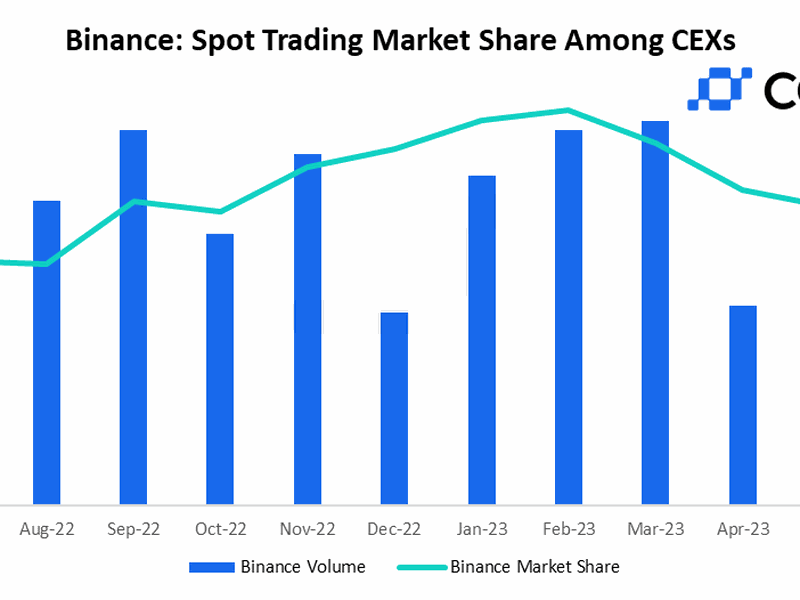Here Are the 2020 US Election Races Crypto Should Watch
CoinDesk is monitoring the U.S. election, following candidates for the Senate and House of Representatives in addition to the Presidency.
The list below includes a number of lawmakers important to the crypto space, whether they be politicians who are proponents of innovation and light-touch regulations, or those who have dismissed the cryptocurrency space or come out against related topics like privacy and encryption.
Here are the candidates we’re watching over the next few days as the final vote is tallied.
President
Donald Trump (R) – U.S. President Donald Trump, first elected in 2016, has only commented publicly on cryptocurrencies once, tweeting in July 2019 that he was “not a fan” of Bitcoin a month after Facebook unveiled the Libra project. Trump has nominated a number of federal regulators relevant to the crypto space, including CFTC Chairman Heath Tarbert and SEC Commissioner Hester Peirce, as well as Attorney General William Barr, who has publicly opposed encryption and announced a report criticizing privacy coins and privacy-enhancing tools like bitcoin mixers.
Joe Biden (D) – Former U.S. Vice President Joe Biden has not commented on cryptocurrencies during his push for the presidency, although his campaign joked it was not accepting Bitcoin after his account was compromised during the 2020 Twitter hack. Potential Biden appointees reportedly include Boston Federal Reserve Governor Lael Brainard, who oversees the central bank branch’s work on digital dollar research.
Jo Jorgensen (L) – Jo Jorgensen, a senior lecturer at Clemson University, is a proponent of free market healthcare and replacing social security. She’s said multiple times on Twitter that she is a fan of Bitcoin. Bitcoin adherents trend libertarian so maybe they’re also a fan of hers.
Brock Pierce (I) – Brock Pierce, known for his work as a child actor in “The Mighty Ducks” as well as his effort to create a crypto-friendly community in Puerto Rico, is running as an independent candidate. Pierce co-founded Realcoin, which eventually became the Tether stablecoin. He later was a co-founder of Block.One, the company behind the EOS blockchain.
Top 5 Senate races to watch
Rep. Cynthia Lummis (R-Wyo.) – Lummis, who served in the House between 2009 and 2017, first invested in bitcoin in 2013 and has said she is impressed by bitcoin as a store-of-value. She won her primary race to join the U.S. Senate representing Wyoming, and is expected to win her seat easily. With a crypto-friendly banking law tapped by Kraken and Avanti Financial, Wyoming’s state government has taken the lead on crypto assets in recent months.
Sen. Tom Cotton (R-Ark.) – Cotton chairs the Senate Banking Committee’s economic policy subcommittee, and has advocated for a digital dollar and the modernization of a dollar, saying it needs to be better than bitcoin. Previously, Cotton has made remarks supporting the scrutiny and regulation of cryptocurrencies in light of concerns about their use in illicit activities, as well as concerns that Facebook is trying to use Libra to enter into new markets. He is one of the co-sponsors of the Lawful Access to Encrypted Data Act, which would require encrypted communication systems to include backdoor access for enforcement agencies.
Sen. Mark Warner (D-Va.) – Warner has expressed concerns about Libra, writing to its governing body last year to discourage the Chinese yuan from being included in the fiat basket underlying the cryptocurrency. The Senate Banking Committee member has also suggested that Facebook might use its user base to rapidly scale up Libra when it launches.
Sen. Mike Rounds (R-S.D.) – Rounds was the first U.S. senator to embrace the Libra stablecoin project, praising the initiative in an open letter sent to Anchorage, one of the Libra Association’s members last year (notably, Anchorage is based in South Dakota). He contrasted Libra with FedNow, the Federal Reserve’s planned real-time payments system. He has also praised the South Dakota Division of Banking’s decision to grant Anchorage a trust charter.
Sen. Lindsey Graham (R-S.C.) – Graham is one of the co-sponsors of the Lawful Access to Encrypted Data Act, which would require encrypted communication systems to include backdoor access for enforcement agencies. He has also overseen a hearing on the impact cryptocurrencies may have had on U.S. elections, specifically looking at foreign interference concerns.
Other Senate races
Sen. Marsha Blackburn (R-Tenn.) – Blackburn is one of the co-sponsors of the Lawful Access to Encrypted Data Act, which would require encrypted communication systems to include backdoor access for enforcement agencies.
Sen. Martha McSally (R-Ariz.) – As a Congresswoman in the U.S. House of Representatives, McSally proposed using a blockchain to store and share information about endemic diseases. She was first elected to the Senate in 2018.
Sen. Kelly Loeffler (R-Ga.) – The former CEO of crypto derivatives and warehouse provider Bakkt has not mentioned Bitcoin since being appointed to the U.S. Senate by Georgia Gov. Brian Kemp (R) late last year.
Sen. David Perdue (R-Ga.) – Perdue co-sponsored a bill calling for tighter sanctions on the petro, Venezuela’s central bank digital currency, among other relief efforts for migrants from the country.
Sen. Dick Durbin (D-Ill.) – Durbin co-sponsored a bill calling for tighter sanctions on the petro, Venezuela’s central bank digital currency, among other relief efforts for migrants from the country.
Sen. Ed Markey (D-Mass.) – Markey has called on the Trump administration to take stronger action against North Korea, claiming a lack of cybercrime provisions in sanctions on the country “do nothing to restrict North Korea’s ability to steal cryptocurrencies.” He has also called on the Federal Communications Commission to take action against SIM swappers, who often steal cryptocurrencies from their victims after hijacking their phones.
Sen. John Cornyn (R-Texas) – Cornyn co-sponsored a bill calling for tighter sanctions on the petro, Venezuela’s central bank digital currency, among other relief efforts for migrants from the country.
Top 10 House of Representatives races to watch
Rep. Ted Budd (R-N.C.) – A first-term Congressman, Budd has co-sponsored a few bills to provide regulatory clarity around cryptocurrencies in the U.S. (alongside Rep. Darren Soto (D-Fla.)), including the Virtual Currency Consumer Protection Act of 2018. He’s also sought to clarify crypto taxation laws, introducing a bill to prevent double-taxation on crypto transactions. Last year, he also wrote a letter with Coin Center asking SEC Chair Jay Clayton to say whether he agreed with a division head that ether, the second-largest cryptocurrency by market capitalization, was not a security.
Rep. Warren Davidson (R-Ohio) – A first-term Congressman, Davidson is a firm proponent of cryptocurrencies and creating regulatory clarity for the space through legislative action. He has sponsored the Token Taxonomy Act at least twice (with Rep. Darren Soto (D-Fla.)) in the hopes of amending U.S. securities laws to create clear buckets for cryptocurrencies.
Rep. Tom Emmer (R-Minn.) – A third-term congressman, Emmer is a co-chair of the Congressional Blockchain Caucus. He introduced a bill aimed at encouraging innovation by creating safe harbor for blockchain startups. Emmer also twice-introduced a bill that would benefit taxpayers holding crypto. His latest bipartisan bill on securities clarity seeks to classify tokens as commodities.
Rep. Bill Foster (D-Ill.) – A fifth-term congressman, Foster is co-chair of the Congressional Blockchain Caucus. Along with Rep. French Hill (R-Ark.), Foster urged the Federal Reserve to consider the creation of a central bank digital currency in a 2019 letter to Chairman Jerome Powell. The same year, Foster was among the lawmakers who called for clarity on crypto taxation. In the past he’s advocated for creating secure digital identity tools and predicted in 2018 that a central bank issuing its own cryptocurrency could impact the U.S. dollar’s status as a global reserve currency.
Rep. French Hill (R-Ark.) – A third-term congressman, Hill wrote a letter to Federal Reserve Chair Jerome Powell with Rep. Bill Foster (D-Ill.) asking the government to consider a national digital currency. He is a member of the Congressional Blockchain Caucus. In a video interview with Yahoo Finance, Hill stated that blockchain tech is part of the future.
Rep. Stephen Lynch (D-Mass.) – A longtime Congressman from Massachusetts, Lynch has participated in a number of pro-blockchain initiatives in the House of Representatives over the past few years, including heading up a FinTech Task Force established by the Financial Services Committee. He’s also called on the White House to consider using blockchain tools to support COVID-19 relief efforts.
Rep. David Schweikert (R-Ariz.) – Schweikert has been an active proponent of cryptocurrencies in the U.S., introducing a number of bills to regulate cryptocurrencies and acting as one of the Congressional Blockchain Caucus’s co-chairs. Just last month, he reintroduced a bill with Rep. Darren Soto (D-Fla.) that would let smart contracts and other information stored on a blockchain act as legal records. He’s also attempted to create a de minimus exemption for small payments conducted using cryptocurrency, a position many crypto advocates and lobbyists have called for.
Rep. Brad Sherman (D-Calif.) – A longtime Representative from California, Sherman has made his anti-crypto stance clear over the past few years, going so far as to call for a complete ban on cryptocurrencies during a House Financial Services Committee hearing. More recently, during a hearing over the Libra project, he said the stablecoin project would be a “godsend” to criminals and touted the dollar’s role in enforcing sanctions.
Rep. Darren Soto (D-Fla.) – Soto introduced two bills on digital taxonomy and blockchain innovation that passed the House of Representatives, and were incorporated into the Consumer Safety Technology Act (H.R. 8128). Soto has also introduced two amendments to the National Defense Authorization Act that could boost the use of blockchain tech in the U.S. military, which were unanimously passed by the House.
Rep. Maxine Waters (D-Calif.) –The Chairwoman of the House Financial Services Committee has called a number of hearings around crypto and blockchain, including several after Facebook unveiled the Libra initiative. She’s said in public statements that private crypto projects like Libra cannot be allowed to compete with the U.S. dollar, and has called for a complete halt in development until lawmakers and regulators can get a better grasp of the project and how it might be regulated.
Other House of Representatives races
Rep. Matt Gaetz (R-Fla.) – A second-term congressman, Gaetz is a member of the Congressional Blockchain Caucus. In 2020, along with other members of the caucus, he signed a letter addressed to President Trump asking the administration to use blockchain technology to streamline pandemic relief efforts. Gaetz also signed a 2019 letter asking the IRS to clarify tax rules as they apply to crypto assets.
Rep. Jesús “Chuy” Garcia (D-Ill.) – A first-term congressman, Garcia introduced the Protecting Consumers from Market Manipulation Act in 2019 with Rep. Rashida Tlaib (D-Mich.). The bill called on the Financial Stability Oversight Council and the Federal Reserve to put together a report on the implications of digital currencies which it defined as a form of exchange and store of value but not “real currency” or “real money.”
Rep. Sylvia Garcia (D-Texas) – A former state senator, Garcia has not taken an overly active role in calling for crypto regulation, but introduced a bill that would classify stablecoins as securities after a House Financial Services Committee hearing about Libra last fall. She later modified the proposed text to specify the “securities” designation would only apply to “managed stablecoins,” referring to those backed by a basket of fiat currencies that are actively managed by a governing entity. In her view, Libra’s subsequent revamp was insufficient to address regulatory concerns.
Rep. Anthony Gonzalez (R-Ohio) – A first-year Congressman from Ohio, Gonzalez has participated in a few hearings around blockchain technology, asking an infosec executive whether the U.S. had the ability to shut down anonymity-enhancing tools like Dark Wallet. He has also sponsored a bill empowering the Financial Crimes Enforcement Network (FinCEN) to study whether blockchain and other new technologies might be useful for the agency’s data collection and analysis efforts.
Rep. Lance Gooden (R-Texas) – A first-term congressman, Gooden was among the lawmakers that called for the IRS to clarify tax laws as they apply to crypto assets, airdrops and forks in 2019. Gooden and Rep. Sylvia Garcia (D-Texas) introduced the Managed Stablecoins are Securities Act of 2019, aimed at classifying actively-managed stablecoins like the Facebook-sponsored Libra as securities and establishing oversight under existing securities laws.
Rep. Paul Gosar (R-Ariz.) – A fourth-term congressman, Gosar introduced the Crypto-Currency Act of 2020 which was referred to the Committee on Financial Services. The draft bill asked to clarify which federal agencies regulate digital assets, and to require those agencies to notify the public of any licences, certifications or registration requirements. The bill was not considered by the committee.
Rep. Josh Gottheimer (D-N.J.) – A second-term congressman, Gottheimer co-sponsored the Token Taxonomy Act – which would exempt tokens from U.S. securities law. It was reintroduced to Congress in 2019, after it did not leave committee in 2018. He is a member of the House Financial Services Committee’s Fintech Task Force, and was among the group of lawmakers who signed a bipartisan letter to Trump adviser Larry Kudlow asking him to include blockchain in the administration’s initiatives for emerging technologies.
Rep. Brett Guthrie (R-Ky.) – A sixth-term congressman, Guthrie introduced the Blockchain Promotion Act of 2018 with Rep. Doris Matsui (D-Calif.). The bill called for the creation of a working group to study the technology, and create a common definition for government purposes. In 2020, the congressman introduced HB6938, a bill to survey the prevalence of blockchain technology across industries and governments globally, with the goal of setting up a national blockchain strategy.
Rep. Trey Hollingsworth (R-Ind.) – A second-term Congressman, Hollingsworth signed a bipartisan letter to Trump adviser Larry Kudlow urging the administration to include blockchain in its initiatives for emerging technologies. Along with other lawmakers, Hollingsworth held a briefing with financial regulators to discuss how machine learning and AI can reduce money laundering and terrorist financing.
Rep. Pramila Jayapal (D-Wash.) – A first-term Congresswoman, Jayapal co-sponsored a stimulus bill with Rep. Rashida Tlaib (D-Mich.) that would create a “Digital Dollar Account Wallet” accessible to every U.S. resident and granting them access to financial services. The chief idea is to use this system to issue $2,000 per month to each resident, backing the funds by minting a pair of $1 trillion coins. Jayapal is also a member of the House antitrust subcommittee, and told CNBC earlier this month that new bills targeting Big Tech monopolies could be introduced next year.
Rep. Ro Khanna (D-Calif.) – A second-term congressman, Khanna is a member of the Congressional Blockchain Caucus. He was among the 11 lawmakers that signed a letter to Treasury Secretary Steven Mnuchin to consider blockchain technology for streamlining the distribution of funds and supplies to those in need during the COVID-19 pandemic. He also signed a letter addressed to the federal government, urging the administration to use blockchain solutions in pandemic relief efforts.
Rep. Sean Maloney (D-N.Y.) – Maloney, a second-term Congressman, has introduced legislation to provide some clarity around how the Commodity Futures Trading Commission collects information about digital commodities contracts and swaps. At the time, he said it was the first crypto derivative-specific legislation to make it out of committee.
Rep. Doris Matsui (D-Calif.) – A fourth-term Congresswoman, Matsui introduced the Blockchain Promotion Act of 2018 with Rep. Brett Guthrie (R-Ky.), aimed at defining blockchain technology by creating a working group to research the space. She also co-introduced the Blockchain Innovation Act, calling for a report on the state of blockchain technology in consumer protection and other areas. At a 2018 congressional committee hearing, Matsui asked Twitter CEO Jack Dorsey to explain the potential applications of blockchain.
Rep. Ben McAdams (D-Utah) – A first-term congressman, McAdams signed a 2020 letter to the U.S. Treasury Secretary Steven Mnuchin, calling for the department to use blockchain technology to streamline pandemic relief efforts. He also signed a similar letter addressed to President Trump and federal officials months later. He is a member of the House Financial Services Committee’s fintech task force. McAdams has been critical of Facebook in the past, arguing that Libra might enable child exploitation by protecting predators.
Rep. Patrick McHenry (R-N.C.) – Running for his fifth term in Congress, McHenry is the Ranking Member of the House Financial Services Committee, which oversees much of the crypto space. He’s warned against regulating the nascent space too heavily, saying there’s “a great opportunity around this technology.” However, he’s also raised concerns with certain projects, calling for a hearing around Libra as soon as it was announced last June.
Rep. Jerry McNerney (D-Calif.) – A seventh-term congressman, McNerney signed a 2020 letter to the U.S. Treasury Secretary Steven Mnuchin, calling for the department to use blockchain technology to aid pandemic relief efforts and the distribution of relief funds. He also signed a letter to President Donald Trump, explaining the benefits of blockchain in streamlining administrative processes.
Rep. Kathleen Rice (D-N.Y.) –A third-term congressman, Rice introduced the Homeland Security Assessment of Terrorists’ Use of Virtual Currencies Act in 2019. The bipartisan bill passed the house, and requires the department of homeland security (DHS) to develop a threat assessment report on virtual currency use by terrorist organizations. The bill was co-sponsored by Reps. Peter King (R-N.Y.), Brad Sherman (D-Calif.) and Van Taylor (R-Texas).
Rep. Eric Swalwell (D-Calif.) – A fourth-term congressman, Swalwell accepted bitcoin for his 2020 presidential bid and signed a letter urging the IRS to clarify tax laws as they apply to crypto for a second time. He has been quoted saying, “Blockchain can change the world, if we let it.”
Rep. Rashida Tlaib (D-Mich.) – A first-term Congresswoman, Tlaib co-sponsored a stimulus bill with Rep. Pramila Jayapal (D-Wash.) that would create a “Digital Dollar Account Wallet” accessible to every U.S. resident and granting them access to financial services. The chief idea is to use this system to issue $2,000 per month to each resident, backing the funds by minting a pair of $1 trillion coins. Tlaib has also overseen certain House Financial Services Committee hearings around the crypto space.









